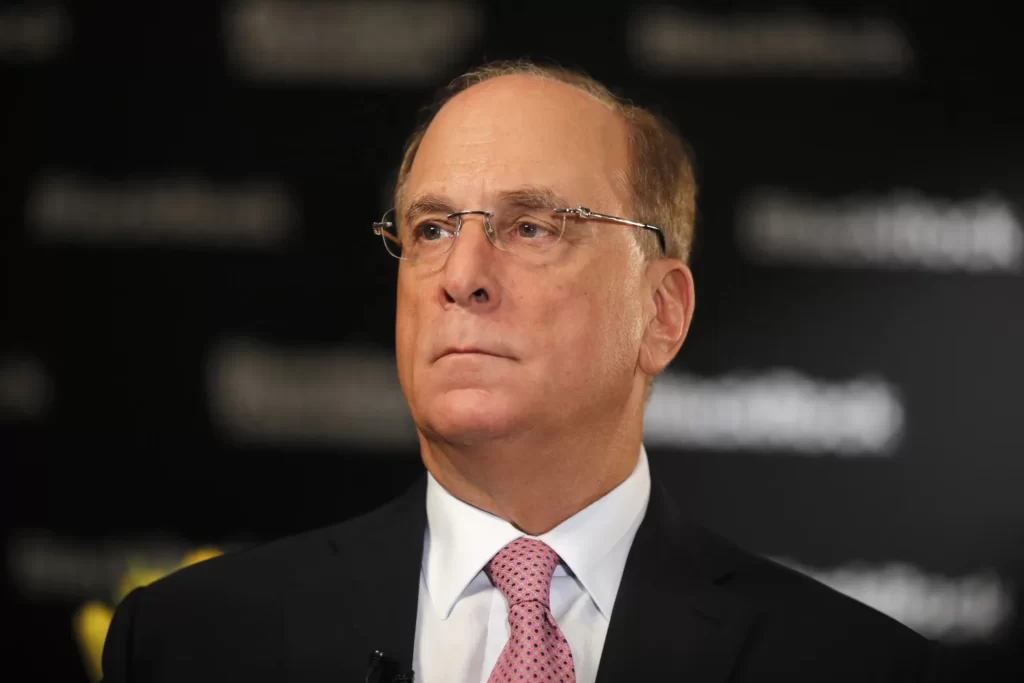Like many bosses, Larry Fink wants his employees back in the office. But in his interview with Fox Business on Tuesday, the CEO of BlackRock offered fresh arguments as to why his company is pushing for a return to the office and bring down the U.S.’s record inflation.
At The Claman Countdown, Fink cited remote work as one of the reasons labor productivity is declining in the United States.
“We need to get people back into the office,” he said, arguing that this would “increase productivity and offset some of the inflationary pressures.”
On the same day, BlackRock announced that it would ask employees to come to the office three days a week, according to an internal email seen by yahoo finance, BlackRock’s COO, Rob Goldstein, and Human Resources Director, Manish Mehta, said in an email. Exceptions to the rule “are rare and will require formal approval,” they wrote. We will have a strict policy, “he said. Mr. Fink said BlackRock’s efforts to get workers back into the office “will be a key factor in reducing inflation in terms of increased productivity.”
BlackRock did not immediately respond to a request for comment.
The US Labor Department said on Thursday that employee productivity in the US nonfarm sector, measured in output per hour worked, fell at an annualized rate of 4.1% in the second quarter, according to the US Labor Department. This was followed by the productivity of 7.4% fall in productivity.
Lower productivity can contribute to inflation. Rising wages do not match increased production, forcing firms to raise prices.
The U.S. consumer price index, which measures price changes, did not change between June and July, though July’s figures were still 8.6% higher than a year earlier.

Return to the Office
BlackRock joins other Wall Street banks in pushing back into the office.
Goldman Sachs and Morgan Stanley said after Labor Day they would lift COVID restrictions on personal work, including such as Requiring vaccinations or routine COVID tests for the employee to return to the office.
Fink isn’t the only Wall Street CEO trying to come up with new arguments to convince people to return to the office. In an Aug. 9 phone call with a high-net-worth client, JP Morgan CEO Jamie Dimon suggested working face-to-face promotes diversity, calling the office a “rainbow room.” He called it “the room of the people” and warned that remote workers live in homogeneous communities.
Will remote work hurt productivity?
Economists warn against reading too much into the recent decline in US labor productivity.
This figure can vary greatly from quarter to quarter due to changes in production and labor force, and it does not necessarily reflect how employees work. The combination of lower GDP and stronger employment numbers is reflected in lower productivity as output falls and hours worked increase.
Heidi Thielholz, director of the Economic Policy Institute, told Fortune in May that one of the reasons for the decline in productivity was “work in restaurants,” which had been curbed by the coronavirus pandemic.
He suggested that some people may be returning to less productive jobs. (It doesn’t mean it’s easy.)
Alternatively, workers surveyed were more likely to claim that remote work increases output, while there is no change in productivity due to remote work.
In July, economists Robert Gordon and Hassan Sayed, in their paper Working for the National Bureau of Economic Research, said the sectors that enabled them to work remotely were more productive during the pandemic than they had been in the past decade.
Sectors that have not been able to accommodate remote work, such as manufacturing, have experienced stagnation or even a decline in productivity room.
Source: Fortune




